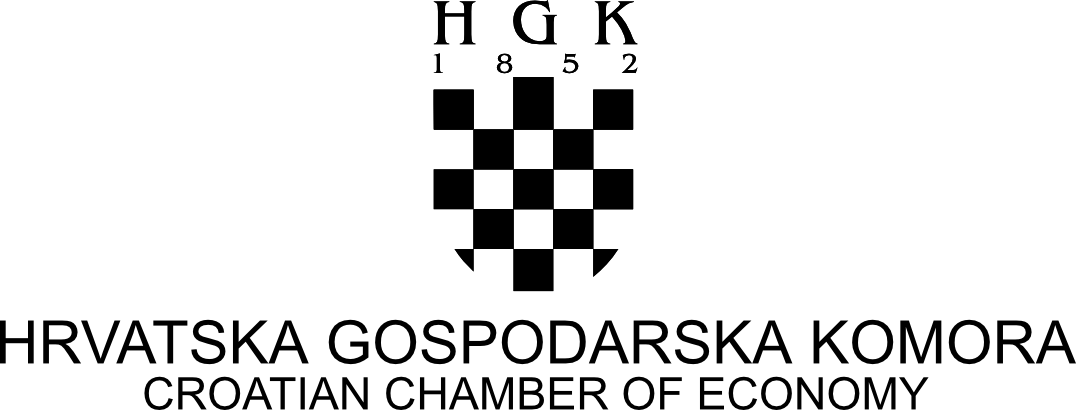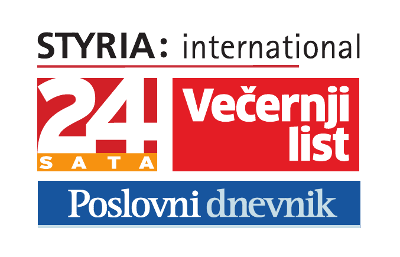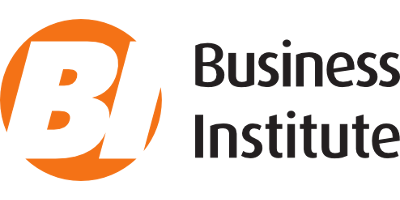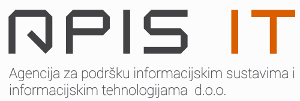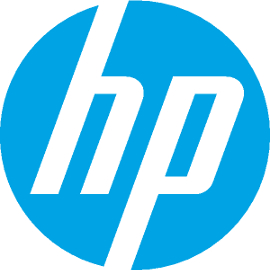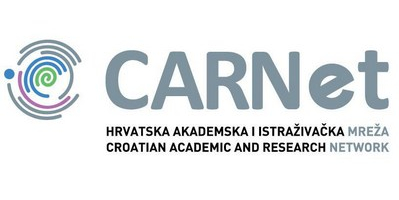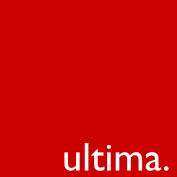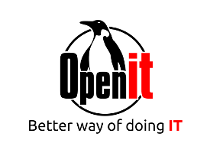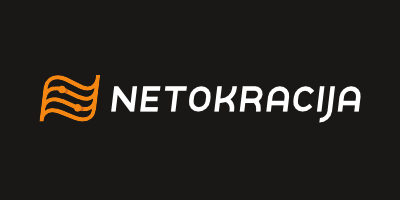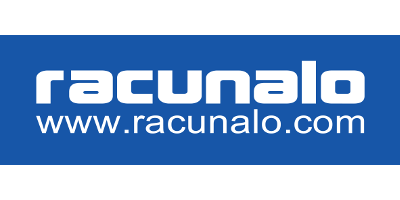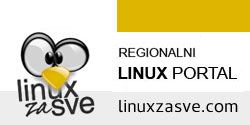Georg Greve
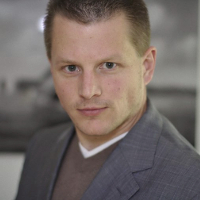 Georg Greve is managing director of Kolab Systems AG from Zurich and has been active for over 20 years in the field of Free Software and Open Standards. The German Physicist was founding president of the Free Software Foundation Europe (FSFE), consulted Google and other companies in areas such as standardisation
Georg Greve is managing director of Kolab Systems AG from Zurich and has been active for over 20 years in the field of Free Software and Open Standards. The German Physicist was founding president of the Free Software Foundation Europe (FSFE), consulted Google and other companies in areas such as standardisation
and Open Source, and is active in a variety of organisations as well as for the European Commission in a consulting capacity. His achievements were rewarded in 2009 with the Federal Cross of Merit on Ribbon by the German government. Today Georg Greve is living with his wife and two sons near Zurich, Switzerland.
Living in the Free Software Society
Open Source is central for innovation, democracy, security and many other aspects that are becoming more essential as the digital society is taking shape. For all these reasons it is winning, and betting against it is increasingly becoming a losing bet. The only question is: Where will be your place in all of this? How do you transition, and deal with the complexities that arise? Georg Greve has spent the past 20 years in Free Software and is one of the world’s leading experts. He was founding president of the Free Software Foundation Europe, has consulted the European Commission, Google and World Bank, and is now the CEO of Kolab Systems, the company behind Kolab, the world’s most secure and open collaboration solution.
Kolab: Do it right, or don’t do it at all
The Kolab Groupware Solution was initially developed 2002 for the German Federal Office for Information Security (BSI) where it is used until today. Its design principles included including the most radical Open Source and Open Standards approach in the industry in combination with the strongest security principles. Learn why large users including the city of Munich have chosen Kolab and what are the benefits these organisations get from its modular architecture and the options for deployment, especially how it excels in complex environments including Mac OS X, Linux and Windows, and why the city of Munich has chosen Kolab. The CEO of Kolab Systems, Georg Greve, will introduce you to one of the only fully Free Software companies in this area, and share some anecdotes from launching MyKolab.com which larger events turned into the world’s leading privacy haven with built-in escape hatch.
Elizabeth Krumbach Joseph
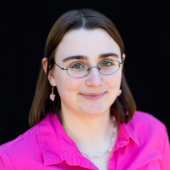 Elizabeth Krumbach Joseph is an Automation and Tools Engineer at HP working on the OpenStack Infrastructure team. She is also a member of the Ubuntu Community Council and on the Board of Directors for Partimus.org, a non-profit in the United States providing Linux-based computers to schools in need.
Elizabeth Krumbach Joseph is an Automation and Tools Engineer at HP working on the OpenStack Infrastructure team. She is also a member of the Ubuntu Community Council and on the Board of Directors for Partimus.org, a non-profit in the United States providing Linux-based computers to schools in need.
Elizabeth will have keynote:
Continuous Integration system for OpenStack developers
The OpenStack project is one of the biggest and fastest growing Open Source projects in the world, and its project integration testing and gating infrastructure is key to the project’s success. Every change, after passing peer-based code review, is automatically tested and merged only if it passes the test suite. This talk will give an overview of this fully Open Source infrastructure, which runs on public OpenStack clouds with running Linux.
Miklos Vajna
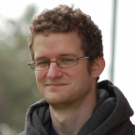 Involved with OpenOffice.org since 2006 where I started as a packager for Frugalware Linux. Then I completed two Google Summer of Code projects to improve the RTF import/export filter of Writer. Hacking on LibreOffice Writer for Collabora.
Involved with OpenOffice.org since 2006 where I started as a packager for Frugalware Linux. Then I completed two Google Summer of Code projects to improve the RTF import/export filter of Writer. Hacking on LibreOffice Writer for Collabora.
LibreOffice — what we fixed in 4.2/4.3
Since LibreOffice 4.1 was released in July 2013, we released 4.2 and at the time of the conference, 4.3 will be also branched off. The talk attempts to give you a brief overview on what changes these two major releases bring to developers and users. Upcoming future plans: the recently completed Calc core rework, our currently developed prototypes, like our mobile app on Android will be also presented. Come and see how TDF is growing and the exciting new features and interoperability improvements it helps to provide, while working in parallel to make also the life of developers easier: reworking and cleaning up under the hood, inventing more techniques to increase test coverage and more. The talk will also cover how a new contributor can become part of our community: how we successfully managed to lower the entry barrier enough so that volunteers are no longer afraid of contributing changes to our large codebase.
Dave Whiteland
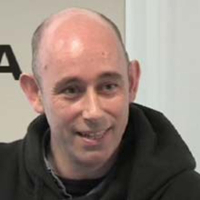 Dave joined mySociety as a developer, and is now also part of the international team, travelling widely to meet organisations and help them set up websites using our code.
Dave joined mySociety as a developer, and is now also part of the international team, travelling widely to meet organisations and help them set up websites using our code.
He has cut code across a range of our projects, including FixMyStreet, ePetitions, and PledgeBank.
His recent travels have seen him help to set up an SMS-based version of FixMyStreet in the Philippines; he’s also been involved in the formation of the Poplus initiative in Chile, and travelled on mySociety business to Malaysia, Myanmar and South Africa… among many other places.
Sharing Things That Work
or “hey I just had somebody else’s really good idea”
UK civic coding charity mySociety’s international team is actively engaged in encouraging civic coders to avoid re-inventing solutions to problems that someone, somewhere has already solved. Most recently this means making a collaborative effort to make useful components rather than whole websites. But there’s more to sharing than just saving developers’ typing time: is it possible to pass on some of the learned experience too? Dave will look at a few of the more subtle aspects of mySociety’s successful projects (and perhaps some less successful ones) to point out there are things going on in there that are easy to miss, fun to know, and useful to share.
Marian Marinov
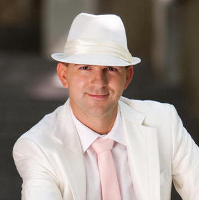 Marian is a System Administrator with more then 14 years of experience. He is Founder and CEO of 1H Ltd. – a software company providing server management and optimization software specifically for the needs of hosting providers.
Marian is a System Administrator with more then 14 years of experience. He is Founder and CEO of 1H Ltd. – a software company providing server management and optimization software specifically for the needs of hosting providers.
Marian is very keen open source supporter and regularly speaks at FOSS conferences in the Balkan region. As Chairman of the board of Open Projects Foundation he is helping in the organization of OpenFest – Bulgaria’s biggest FOSS conference. In his spare time he is also part-time lecturer in University of Sofia, where he teaches Network Security and Linux System Administration. He is a regular speaker at DORS/CLUC.
Harald Welte
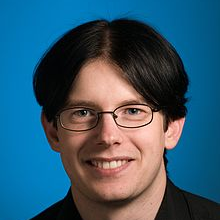 A programmer resident in Berlin, Germany. Within the free software community, Welte is well known as a hacker of the Linux kernel and for his activities in enforcing the GNU General Public License (GPL), the license that governs the use of much of free software.
A programmer resident in Berlin, Germany. Within the free software community, Welte is well known as a hacker of the Linux kernel and for his activities in enforcing the GNU General Public License (GPL), the license that governs the use of much of free software.
Welte is also involved in a number of free software projects, such as Openmoko, (a version of Linux for completely open, low-cost, high-volume phones) and the netfilter/iptables project (the core firewall mechanism in Linux-based firewall computers and routing devices). He is an active member of the Chaos Computer Club.
Osmocom.org – Open Source Mobile Communications
The Osmocom community has established itself as a small group of developers dedicated to bring more Free Software into the world of mobile communications infrastructure. Some key projects include the OpenBSC project, enabling you to run a private GSM network with voice calls, SMS and GPRS data services. The OsmocomBB project implements a telephone-side GSM protocol stack for a specific family of feature phones. Maany other sub-projects exist within osmocom, covering technolgies like TETRA, DECT, Thuraya satellite telephony, SDR, SIM cards and many other aspects. The talk will give an overview of the various projects and their status.
OpenBSC – running your own GSM network
Traditionally, operating a cellular telephone network required mainframe-sized racks of equipment costing hundreds of thousands of Euros. Very few entities outside the elite circle of mobile operators were able to afford this. As a result, we had few GSM networks available for teaching at universities, for academic as well as private research, and also for the IT security community. This changed in late 2009, when the first humble attempts of what is now known as OpenBSC started and was first demonstrated at the Chaos Communications Congress.
The talk will illustrate the progress made since, and how you can use OpenBSC to run your own GSM network.
Other talks
Note: There may be minor changes to a list and description of talks. Final conference schedule is available on the following link: http://2014.dorscluc.org/en/conference-schedule/
Light talks
Luke Blaškovic ‘Saltstack’
Talk summary: Introduction to Saltstack project (fast, scalable and flexible automation software), and examples of usage.
About the speaker: Dad of little daughter Mare. Originally from Novigrad near Zadar. Over a year hobbyist and professional engagement with wireless computer networks, Linux administration and virtualization. .Finished undergraduate level of Computer Science course at the Technical University of Applied Sciences, Google summer intern 2013. I work at the Philosophy Faculty as a system administrator, and as freelancer. I’m interested in distributed storage systems, and virtualization platforms.
Vedran Rodić: I want a better Internet
Talk summary: Presentation of an initiative for the development of public FTTH infrastructure in Croatia
About speaker: Programmer and system engineer with 15 years of experience with Linux. Free software enthusiast.
Jelena Georgijević ‘BalCCon 2k14’
Talk summary: Balkan Computer Congress – BalCCon2k14 – a three-day gathering of the international hacker community organized by the Association of Linux Users Novi Sad – LUGoNS’s. It is planned that the second BalCCon – BalCCOn2k14 will be held from 5th-7th of September 2014 in Novi Sad in the Master Center. BalCCon is envisioned to become the center of the hacker community environment for all those who are not financially able to visit the other conferences in Europe and the USA. This event is essential to the Balkans, place for an annual exchange of knowledge, gathering of young people full of ideas and older folks full of the experience and knowledge. It is also a meeting point for everyone who is interested in computer science, networking and unconventional way of thinking but they don’t know where to obtain the desired information. This would raise the level of expertise in the hacker community with the leadership of older colleagues and it would solve the problem of inability to reach place and time for presenting extraordinary work. By bringing famous and prominent people as speakers would enable people from the region to see them in live and to discuss with them on topics of interest to them. BalCCon wishes to draw the world to students who are interested in hacktivism, free code, technical sciences and of course to draw this world to all the young people who have these and related topics of interest. Link: https://balccon.org
About the speaker: I’m an active member of the Association of Linux Users of Novi Sad for over year and a half. One of the main organizers of BalCCon. By profession engineer of electrotechnic and telecommunications. Currently I am a PhD student at the Faculty of Technical Sciences in Novi Sad in the department of electrical measurement and instrumentation. Otherwise I work as a programmer.
Mario Borna Mjertan: Elementary schooler on FLOSS
Talk summary: I use Linux for 6 years. I do websites, programming in PHP, C + +, Python and shell. What is so unusual in this? I am 14 years old and I’m an 8th grader.
About speaker: pupil of 8th grade in elementary school
Marian Marinov, ‘RIPE Atlas’
Talk summary: RIPE Atlas is a network monitoring system that gives you an incredible ability to monitor your network connections with thousands of places at once.
About the speaker: Marian is a system administrator with over fourteen years of experience. He is the founder and CEO of 1H Ltd’s – a software company that provides optimization and management software developed for the needs of hosting providers. Marian was very zealous advocate of open software and a regular participant at FOSS conferences in Balkan region. As head of the board of the Foundation open source projects he helps with the organization of openFest – Bulgaria’s largest FOSS conference. In his spare time he is working as a lecturer at Sofia University where he teaches network security and system administration of Linux. He is also a regular speaker at DORS / CLUC conference.
Dobrica Pavlinušić: ‘Parallella’
Talk summary: Parallella – supercomputer for anyone, an interesting new hardware platform based on the Epiphany processor supported with Zynx FPGA that contains two ARM processors and allows you to run HPC tasks on the board which costs $100
About the speaker: Addicted to Unix and Internet, consultant, graduated from the Faculty of Organization and Informatics in Varazdin, where he earned graduate degree in the field of Informatics. His areas of interest include Internet technology, Unix, Open Source Movement and Free software (in the sense of freedom, not price) and Linux. He is a member of the executive board at Croatian Association for open Systems and Internet. His major preoccupation is addressing interesting problems using available technology.
workshops
Ivan Voras ‘Pushing the limits – extreme optimization of servers’
Workshop summary: Modern hardware is surprisingly strong if it is used well. For an environment similar to Raspberry Pi on this workshop it will be shown ideas and techniques how to extract the maximum from the hardware for usual services of the modern Internet. This workshop is for people with no knowledge of Linux server administration, but not too advanced for administrators – those who are professionally engaged for years they probably have encountered and solved the topics that will be treated here.
About speaker: Ivan Voras works at FER, and has years of experience with the world of open software and various hardware.
Luka Blašković: ‘Hands on Virtualization with Ganeti’
Workshop summary: The focus of this workshop is to provid eattendees with experience of setting up and working with GANETI cluster.
About speaker: Dad of little daughter Mare. Originally from Novigrad near Zadar. Over a year hobbyist and professional engagement with wireless computer networks, Linux administration and virtualization. .Finished undergraduate level of Computer Science course at the Technical University of Applied Sciences, Google summer intern 2013. I work at the Philosophy Faculty as a system administrator, and as freelancer. I’m interested in distributed storage systems, and virtualization platforms.
Dobrica Pavlinušić ‘ZFS on Linux – make your disks in the best way’
Workshop summary: ZFS has a long history on different operating systems. Lately, the most active port that filesystem is just on Linux. In this workshop it will be shown why would it be good that customers replace their SANs and NASs with Linux servers full of disks and SSDs and use ZFS on it because it has all the features that are required (COW, compression, deduplication, snapshot, send / receive) regardless of whether it is used for stacking file servers, devices for backup and disaster recovery solutions.
About the speaker: Addicted to Unix and Internet, consultant, graduated from the Faculty of Organization and Informatics in Varazdin, where he earned graduate degree in the field of Informatics. His areas of interest include Internet technology, Unix, Open Source Movement and Free software (in the sense of freedom, not price) and Linux. He is a member of the executive board at Croatian Association for open Systems and Internet. His major preoccupation is addressing interesting problems using available technology.
Talks
Ivan Voras ‘Raspberry Pi server for National Newspapers
Talk summary: How did I create the Raspberry Pi server that serves documents of the National servers and enables, searching, and “subscription” to new documents and terms.
About speaker: Ivan Voras works at FER, and has years of experience with the world of open software and various hardware.
Dobrica Pavlinušić ‘GANETI – cloud at home’
Talk summary: In this talk we will explain how to use GANETI virtualization and high availability (with kvm and drbd), salt to automate the installation GANETI host’s and ZFS for backup e. Our use-case system is hall of the Faculty of Philosophy in Zagreb where in the last 20 years of has accumulated pile of machines that can more efficiently be used as a cloud system, but we believe that this experience is interesting enough for any organization that has more than one server.
About the speaker: Addicted to Unix and Internet, consultant, graduated from the Faculty of Organization and Informatics in Varazdin, where he earned graduate degree in the field of Informatics. His areas of interest include Internet technology, Unix, Open Source Movement and Free software (in the sense of freedom, not price) and Linux. He is a member of the executive board at Croatian Association for open Systems and Internet. His major preoccupation is addressing interesting problems using available technology.
Darko Topolko ‘eGovernment on open technologies’
Talk summary: The first brief about us (4 min) Company established in 2004., Designing custom web applications, using only open technologies, tools used for development and production. 2. REGOS Ena (10 min) A system for delivering electronic documents, online since January 2013., delivered more than 55,000 documents, free of charge for citizens – we have saved more than $ 2.2 million. A positive example of integration of open technologies with APIS and FINA systems integration in the government project e-Citizens. 3. HZMO Lana (10 min) system for submitting electronic applications for pension insurance, applicable to all entities that employ more than three insured people. 58,000 taxpayers, 21,000 users. The first significant eGovernment system based on open technologies, the first system which became the property of the client, the first (and so far only) system that makes use of the FINA certificates for electronic signatures on Mac OS X and GNU / Linux operating systems. 4. Implementation specifics of eGovernment solutions, obstacles in the introduction of open technologies and how to remove them (6 min) functionality is defined by the laws and regulations that change frequently, some are contradictory, there is a danger in integration with other systems. Significant funds are currently spent on proprietary solutions, the situation will not change without a political decision. Managers responsible for implementing new solutions are skeptical on the issue of open technologies. These technologies are not sufficiently represented in the education system so that students are often not familiar with them or at least not sufficiently.
About the speaker: I am the founder and co-owner of Ultima company. Open technologies started to interest me in high school and today in my company we use open technologies every day in our work. We have a wide range of customers, from private companies to civil society and government for whom in the past 10 years we have built a variety of ERP, CRM and eGovernment systems. based on open technology.
Hrvoje Bogner ‘VGI and its application’
Talk summary: Volunteered geographic information is the harnessing of tools to create, assemble, and disseminate geographic data provided voluntarily by individuals.Principles and examples of collection and sharing of spatial information. Examples of the use of technology in natural disasters in order to save lives, to preserve cultural heritage, and for various other “ordinary” application.
About the speaker: Member OpenStreetMap Foundation, an international non-profit organization to support the OSM project, a member of the working group for the promotion of local OSM community. She participates in several associations and communities to promote free software and free information. One of the founders of the OpenStreetMap community in the Croatia.
Ivan Longin ‘Polyglot persistence’
Talk summary: SQL databases problems and the need for different solutions. Advantages / disadvantages of NoSQL database podataka. Division and examples of NoSQL databases. When to use a particular type of a database. Combination in the same system and conditions for polyglot persistence.
About the speaker: I come from relation island Ugljan – The city of Zadar and finised MIOC in Zadar, where I have met with all the charm of computing and programming. Natural selection was Faculty of electrical engineering and computing in Zagreb and after successful graduation I have been employed at Infobip in Zagreb for the last year and a half. In the field of computing have a different domain of interest from machine learning to web applications and distributed systems. On the project at Infobip (push notification), I have met with several databases such as MSSQL, MongoDB, Cassandra, REDIS and hence my interest in particular for distributed NoSQL database from the world. I spend my free time with my girlfriend, and I read mostly technical books and go to the gym.
Marian Marinov: “The idiot’s approach to patching ‘
Talk summary: Marian will share with you his experience of patching software to other people and their approaches in preparation for patching. It will include examples of the Linux kernel and rsync.
About the speaker: Marian is a system administrator with over fourteen years of experience. He is the founder and CEO of 1H Ltd’s – a software company that provides optimization and management software developed for the needs of hosting providers. Marian was very zealous advocate of open software and a regular participant at FOSS conferences in Balkan region. As head of the board of the Foundation open source projects he helps with the organization of openFest – Bulgaria’s largest FOSS conference. In his spare time he is working as a lecturer at Sofia University where he teaches network security and system administration of Linux. He is also a regular speaker at DORS / CLUC conference.
Marian Marinov ‘LXC containers – the missing parts’
Talk summary: This talk will be covered by all of the Linux containers with a focus on what is currently missing in the kernel and userspace tools. Marian has proposed some patches for the Linux kernel, rsync, LCX and criu, and will talk about them. In the enf he will about the container / process migration.
About the speaker: Marian is a system administrator with over fourteen years of experience. He is the founder and CEO of 1H Ltd’s – a software company that provides optimization and management software developed for the needs of hosting providers. Marian was very zealous advocate of open software and a regular participant at FOSS conferences in Balkan region. As head of the board of the Foundation open source projects he helps with the organization of openFest – Bulgaria’s largest FOSS conference. In his spare time he is working as a lecturer at Sofia University where he teaches network security and system administration of Linux. He is also a regular speaker at DORS / CLUC conference.
Igor Vuk, Vedran Živičnjak ‘OpenShift’
Talk summary: Our aim, through this talk, is to give a brief overview of OpenShift PaaS solutions. We will show: components that make OpenShift, architecture design, the advantages and disadvantages of a solution, as well as the experience gained in working with OpenShift.
About speakers: Vedran and Igor are employees at Nimium Ltd., which is the only Red Hat Premier Partner in Croatia. Both are RHCE and VCP certified. At leisure they love to “poke” diverse hardware and software.
Vanja Radovanovic: “Kafka & Storm ‘
Talk summary: Short introduction to Apache Kafka & Storm, a little bit about how they have been used at Infobip company for streaming data collection and for preparing worktops of users in real time.
About the speaker: Life surfer with thirty-something who enjoys Aikido and large format photography. You can look at my doodles on https:github.com/elvanja On Twitter I Tohokami @ https://github.com/elvanja and I go by Tohokami @ Twitter.
Petar Koraca: ‘Chef – Automation Platform’
Talk summary: Chef is based on the following: You can modify your evolving IT infrastructure and applications as a code. Chef’s not making assumptions about the environment and approaches that you have been using in order to configure and manage it. Instead, Chef gives you a way to describe and automate yourr infrastructure and processes. Your infrastructure becomes testable, versioned and can be repeated. It becomes part of your Agile process. The presentation will cover an overview of Chef, usage examples, sample code and testing methods.
About the speaker: Peter Koraca a sysadmin at Infobip company, working mainly in Linux administration, virtualization technologies, monitoring, etc.
Goran Cvijanovic ‘Spago BI – 100% Open Source BI’
Talk summary: Business Intelligence – Business Analytics and Reporting – or abbreviated BI.BI is the area of computer science that combines a large number of technologies and skills.It should be emphasized the fact that we can observe two segments of BI activities, BI platform and BI apps. We will present BI platform that enables SpagoBI users to build applications to support integration and information analytics. Open Source BI systems incorporate specific functionality IT platform designed to solve specific areas related to the analysis of business data and indicators, as well as technologies that enable that. SpagoBI is completely 100% open source, complete and flexible BI platform that covers a very broad range of BI needs using analytical tools related to each other through a common application server, which combines the flexibility of open source solutions and platform necessary for business environment. Through the talk it will be presented platform itself, tools that are being used and that are an integral part of the solution and Spago BI Server as a functional BI system.
About the speaker: Director at Vinteh d.o.o. company that is specialized for the implementation of technologies for databases and BI systems, based on open source platforms. Goran specifically focuses himself on the integration and optimization of systems in heterogeneous environments, using Pentaho Data Integration, Oracle, and PostgreSQL database with columnar and NoSQL architecture, building systems for reporting and decision support with Pentaho BI and Spago BI platforms and consulting solutions in the application and implementation modern system of business support on open technologies.
Vedran Miletić ‘NVIDIA CUDA: ecosystem, what is open here and what is not so open?’
Talk summary: NVIDIA says that they are worldwide leader in visual computing technologies and the on Valve statistics speaks in favor of it. In fact, more than half of the Steam users have some of the NVIDIA graphics processors, followed by AMD and Intel. On the other hand, NVIDIA has a very interesting history (not) collaborating with the open source community which includes an open 2D-only nv driver, fantastic (and unfortunately closed) nvidia driver, reverse-engineering nouveau and stories about support for NVIDIA Optimus culminating Torvalds’ middle finger and the accompanying words. The epilogue of the story took place this year with an open driver for Tegra K1. Through this talk I will present the state of affairs in the field of computation on graphics processors domain in NVIDIA runs the lead with its CUDA technology. Despite being a basic set of tools for the most part closed, opening the individual components is a positive thing. In addition, the entire ecosystem that has been developed around the CUDA technology holds large number of open source projects as well as those who are partially open source.
About the speaker: Vedran Miletić works as an assistant in Department of Informatics and the Faculty of Engineering, University of Rijeka. He is attending doctoral course at Faculty of Electrical Engineering and Computing. He is interested in operating systems, computer networks, scientific computing, and distributed and heterogeneous parallel computing. From the 2009 to 2013 he has led Rijeka branch of Croatian Linux Users’ Association.
Alen Vodopijevec ‘Owncloud’
Talk summary: Owncloud is a tool for network storage, sharing and synchronizing files between various devices and as such very interesting ‘free’ alternative to popular online services such as Dropbox and Google Drive. The system consists of a server component and the client application for synchronization that supports all common operating systems. In addition to the basic functionality of file management, in Owncloud are implemented modules such as calendars, management module connections, support for multimedia files and more add-ons developed by third parties. One of the major new features is the ability of collaborative work on text documents. In addition to the above display options will be addressed and configuration examples of this tool in a variety of environments.
About the speaker: Alen Vodopijevec has been working on the development of online services Libraries RBI for many years. Besides system administration he deals with the implementation and maintenance of institutional repositories and integrated library systems based on open source software solutions (Eprints, Koha). An advocate of free software and open access to information in science and beyond.
Tomislav Bišćan: ‘Demistified Drupal – application basis for modern web systems’
Talk summary: Drupal is an open-source content management framework, application foundation for the development of modern Web sites. He is currently in version 7 and version 1 appeared in 2001. The result is excellently organized community of open source and one of the few serious open-source projects with no commercial upgrade. According to Wikipedia at least 2.1% of web sites on the Internet is done on the Drupal platform. With its rich functionality Drupal is among the best platforms for the CMS, web shop, social network, virtual learning environment and intranet implementation and a whole series of similar software solutions. Excellent support for multiple languages, RSS, content types, theme customization, upgrade and expand functionality of modules makes it an excellent choice in many programming tasks. The biggest drawback and the reason why users do not choose Drupal is a slightly longer learning curve. Let’s demistify Drupal!
About the speaker: Tomislav Bisćan’s is a co-founder and technical director at Cognita Ltd, the only Croatian company specialized in e-learning and distance learning systems. His vast experience has been built on a series of projects involving software development Cognita eLearner LMS, the award-winning platform for e-learning, web portals like edukacija.net, different environment for distance learning, integrated solutions around e-learning, multimedia development of e-content, etc. He has been actively monitoring Drupal from version 6 and has authored 10ish Web sites built on this platform. Because of the rich teaching experience attendees can expect technically meaningful, funny and interesting talk.
Milutin Zrnić, Denis Ristic: ‘Cedeterija, Klik4 and Dubrovnik Summer Games – Drupal and Magento in function of e-business’
Talk summary: In this talk, Milutin Zrnić and Denis Ristić from the Department for e-business in the company Perpetuum Mobile will present the experience with the implementation of three interesting projects, two based on the Magento platform and one on Drupal. Cedeterija.com the “Croatian iTunes” Klik4 is an advanced B2B portal for customized business gifts and for Dubrovnik Summer Games migration from Microsoft. Net to the Drupal platform portal in which we collaborate for many years. Mr. Zrnić and Mr. Risitć will look back on the experience in migrating their perpetual CMS and e-commerce offerings from Microsoft to Drupal and Magento.
Dejan Gambin: ‘Open BI data in an open environment’
Talk summary: This talk will demonstrate how open data can be used in an open BI environment, for example a list of properties owned by the state, published on the website of the National Office for State Property Management. Will show the whole workflow, from downloading data using Pentaho ETL tools to visualize through their analytical Saiki project, the interface Pentaho. Along the way I will mention news from Pentaho world, with an emphasis on free tools CTools group.
About the speaker: Dejan Gambin is a board member of the company COIN, where among other things deals with the development of specific GIS and BI solutions in an open environment. Linux and free software has to deal with more than 10 years, thanks to the work of local government, and where begins the promotion of open source and open data in all areas of work. He actively participated in a number of outstanding projects and cooperated closely with the academic community and many other open source developers.
Round table: Women in FLOSS technology world
Round table panel: Elizabeth Krumbach Joseph, Ana Mandić, Jasna Benčić, Lucija Pilić
Round table summary: Women in FLOSS technology world and in IT in general is still a minority. In this round table you’ll get to see ways how can women join FLOSS world, what experiences they might encounter while joining and during contributing phase and what could be done in order to get more women into FLOSS technology world.
About round table panelists:
Elizabeth Krumbach Joseph is an Automation and Tools Engineer at HP working on the OpenStack Infrastructure team. She is also a member of the Ubuntu Community Council and on the Board of Directors for Partimus.org, a non-profit in the United States providing Linux-based computers to schools in need.
Ana Mandić is a software developer working for Five Minutes Ltd., leading Croatian company in developing mobile applications and server solutions, where she leads a team of developers working on Java Enterprise applications. She gained her longtime experience in developing web and mobile applications while working on projects for international companies such as BancaSella, Novartis Pharma and Real Networks. Today her focus is on developing complex J2EE applications for Rhapsody. As an active member of the Croatian Girl Geek Dinners community she participates in organizing coding workshops with the desire to popularize ICT among young people and especially woman.
Jasna Benčić is a vice president of Croatian Linux Users’ Association. By a profession she is a teacher of Informatics but she works as a Jr. Operations engineer at TeamSnap company. She has been involved with FLOSS technology world since 2010 in Croatia and since 2012 in abroad as well. You can find out more about Jasna on her personal blog: http://jasnabencic.blogspot.com/
Lucija Pilić is a journalist with special interest for video gaming, mobile technology and FLOSS technology. Lucija is a newly elected spokesperson of Croatian Linux Users’ Association.
Marta Milaković: I am a student at the Faculty of Electrical Engineering and Computing, major in Computer Engineering. I spend an exciting semester as an exchange student in Denmark, where I also had a chance to acquire experience while working in a company on some parts of the future smart house. I have a broad range of interests, from the embedded systems, operating systems, to the development of the user applications. I’m really glad that the road took me into Open Source software, which I have been using and studying for many years. I found a special beauty, glamor and elegance in GNOME, so I decided to contribute to its development. At the moment I am actively working on GNOME, as part of the summer project, Google Summer of Code.




